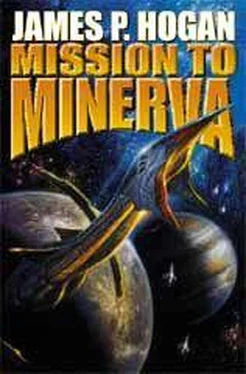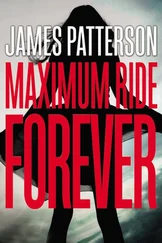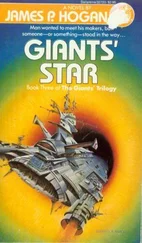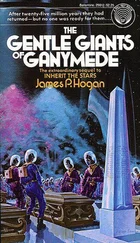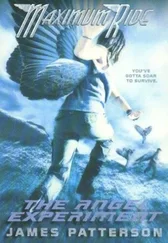The "quantum paradoxes" that textbooks and popular writers of years gone by had reveled in arose when a system of quantum entities such as photons or electrons existing in some particular state changed to some different state when a number of new states were possible. Examples might be an energetically excited atom that could relax back to its minimum-energy "ground" state via any of several alternative sequences of intermediate energy levels, or a photon hitting a half-silvered mirror, which gave it a fifty-fifty chance of being reflected or transmitted. How did Nature "choose" from the various possibilities the one that actually took place?
On the face of it, the situation seemed no different from that of, say, a gambler's die, which from the rolling state could assume any of six discrete final states, each showing a different number. The mechanics of moving objects was well understood, and only inability to specify precisely the die's shape, mass, and motion prevented the outcome to be predicted reliably every time. In other words there was no mystery. The outcome was determined, but imperfect knowledge made it unpredictable. However, this was only another way of saying that the situations were not the same to begin with. At the quantum level, this was not so. The systems being investigated were identical in every way that could be established. Why, then, should they behave differently?
Quantum objects acted as if they were everything at once while they were not interacting with their environment, but the instant they encountered another entity capable of pinning them down-for instance, a detector in a measuring instrument designed to find out something about them-they abruptly took on one from the available selection of possible states. Hardly surprisingly, such oddness did not sit lightly with beings accustomed to a world in which things knew what they were and continued to be so while nothing was looking at them. The scientific debate about the perplexing accumulation of quantum paradoxes raged through the first two decades of the twentieth century-beginning, ironically, immediately following a series of confident assurances that everything of substance was known and science was effectively a closed book. But there could be no getting away from what the results of countless experiments seemed to indicate. The challenge was to account for them in a way that described what was "really" going on.
Some refused to get embroiled in the issue at all, and instead took the view of science as being simply a pragmatic process for generating numbers to be compared with experimental results, beyond which nothing more could be said. For a long time the predominant view was that nothing really existed in any objective sense at all until an act of observation caused it to assume one of its possible sets of attributes ("states") randomly. Exactly what constituted an "observation" was a further source of contention, opinions covering the range of steps from any interaction with another quantum object, to the final registering of an impression upon a human consciousness. Others avoided the disturbingly mystical implications of this kind of approach by maintaining that the allegedly identical objects weren't really identical but differed in some subtle ways that eluded detection at the present time. The problem with this, however was that it required everything in the universe to be capable, just as subtly, of instantly influencing everything else, a notion which many considered to be every bit as mystical as anything else that was being said, if not more so.
By the end of the twentieth century, the scientific world had come to terms with accepting that whatever answer they settled on was going to be bizarre by normal standards anyway, so they might as well get used to throwing away all preconceptions and focus purely on what the facts seemed to be trying to say. And what the facts said, when the formalism was taken at face value without imposing some arbitrary wave-function "collapse" that the mathematics said nothing about, was that the world showed evidence of being everything at once because it was everything at once; the reason it didn't appear that way was that everyday awareness only apprehends a small part of it.
According to the picture that finally emerged, neither an energized atom nor an impinging photon "chooses" one state from an ensemble of possible states-thus provoking endless debates about how, when, and why it gets to make that choice; every possibility is actualized-but each in its own separate reality, which then continues to evolve the various consequences of the particular alternative that led to it. The various realities all contain versions of their inhabitants that are consistent with the unfolding of events making up that reality, remaining unaware of all the rest. The dice thrower in one reality rolls a boxcar, double six, breaks the bank, and retires rich; his counterpart in another of the thirty-six possible two-die variants rolls zilch, loses his shirt, and jumps off a bridge. This formed the essence of the Many Worlds Interpretation of quantum mechanics.
Many popular accounts talked about the universe "splitting" into alternative forms, with notions of what constituted a branch point varying from "every quantum interaction" to any event deemed sufficiently significant by humans-the realities continuing thereafter to exist adjacently but separate and discrete, somewhat like the pages of a book. Hence the term "parallel universe." But while perhaps more easy to visualize, this did not accurately capture the strange state of affairs that the formulators of the MWI were proposing. New universes didn't spring into existence out of nothing every time some kind of decision was called for, anymore than New York or Boston suddenly materializes in response to a driver's going right or left at a junction in the highway. They were there already and always had been, just like all the other possible destinations on the road map.
In a similar kind of way, not only all the futures that could possibly arise from a given "now," but all the different "nows" that could have come about, existed as parts of an immense, branching totality, all of it equally real. Within it, every quantum alternative led to a unique consequent reality which in that detail at least differed from all the rest. Rather than resembling a stack of pages, its nature was more that of a continuum of change existing in as many directions as change was possible. The kind of change depended on the direction taken, occurring sometimes gradually, sometimes abruptly. Every conceivable way in which one world could differ from another therefore corresponded to an axis of change within the continuum, endowing it with an as good as infinite number of dimensions. The totality itself was unchanging and timeless. The phenomenon of time measured by physics arose as a construct of the event sequence that arose from tracing a particular path through the tree of branching alternatives. Every such path defined its own discrete reality, or "universe." The perception of time emerged from a consciousness following such a path through the alternatives that it encountered. Exactly how was something that the physicists left to philosophers, theologians, and mystics to explain.
The normal "forward" flow of experience within a universe ran up the tree of branching time lines. Direct knowledge of the other realities existing to the "sides" seemed to be precluded-except for the interference paradoxes that resulted from information leaking across at the tiniest level, from which the necessary existence of the entire stupefying whole had been inferred. Of course, this didn't prevent speculation on whether some kind of communication "horizontally"-between branches-might be possible. Even if it were, nobody had the remotest idea how such a thing would be achieved. It remained just an intriguing hypothesis, good for philosophical Ph.D. dissertations, becoming known in obscure journals, and getting a discussion going at cocktail parties. Nothing in the whole of history suggested any precedent for taking the subject seriously…
Читать дальше
